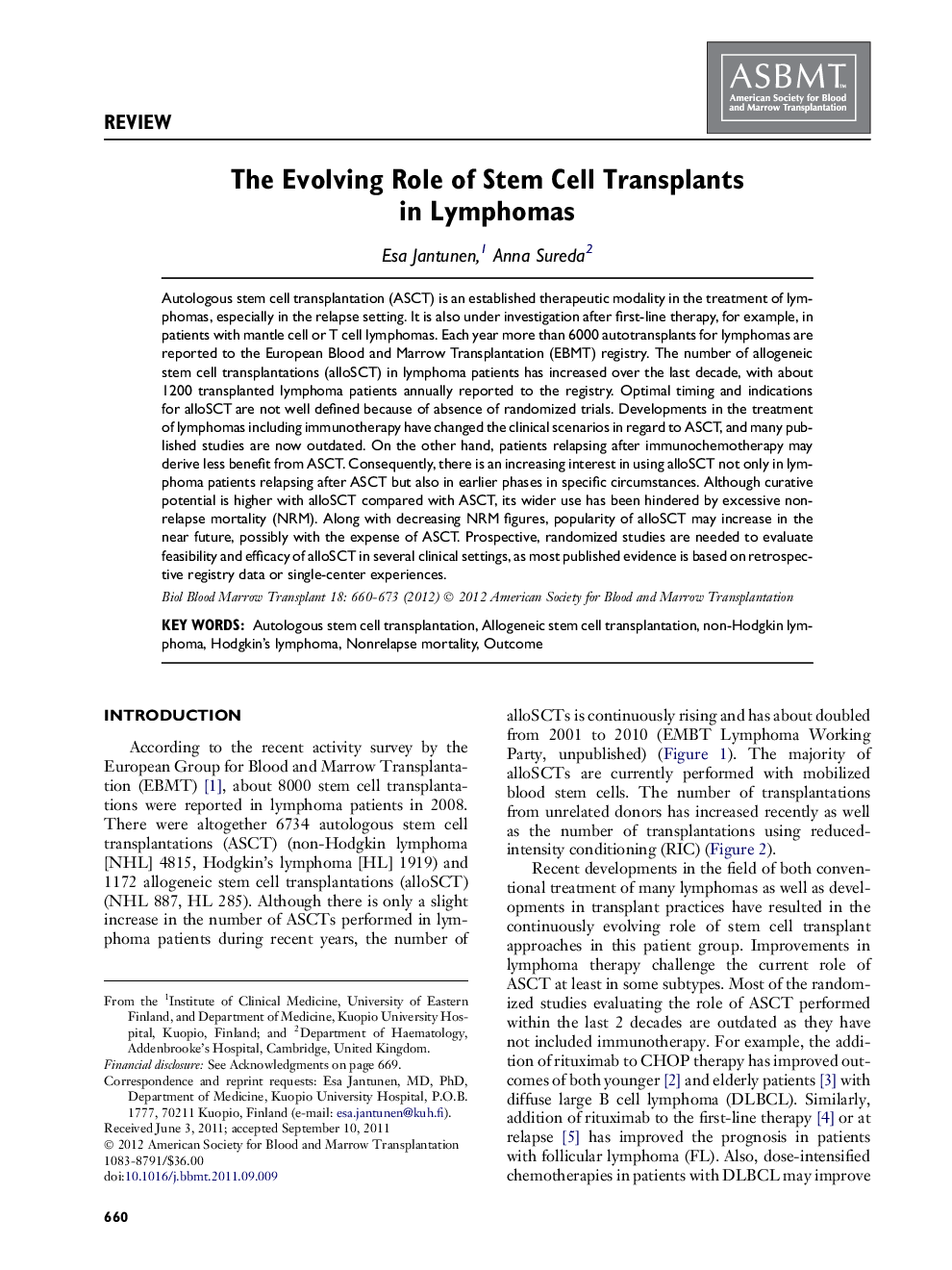| Article ID | Journal | Published Year | Pages | File Type |
|---|---|---|---|---|
| 2102799 | Biology of Blood and Marrow Transplantation | 2012 | 14 Pages |
Autologous stem cell transplantation (ASCT) is an established therapeutic modality in the treatment of lymphomas, especially in the relapse setting. It is also under investigation after first-line therapy, for example, in patients with mantle cell or T cell lymphomas. Each year more than 6000 autotransplants for lymphomas are reported to the European Blood and Marrow Transplantation (EBMT) registry. The number of allogeneic stem cell transplantations (alloSCT) in lymphoma patients has increased over the last decade, with about 1200 transplanted lymphoma patients annually reported to the registry. Optimal timing and indications for alloSCT are not well defined because of absence of randomized trials. Developments in the treatment of lymphomas including immunotherapy have changed the clinical scenarios in regard to ASCT, and many published studies are now outdated. On the other hand, patients relapsing after immunochemotherapy may derive less benefit from ASCT. Consequently, there is an increasing interest in using alloSCT not only in lymphoma patients relapsing after ASCT but also in earlier phases in specific circumstances. Although curative potential is higher with alloSCT compared with ASCT, its wider use has been hindered by excessive nonrelapse mortality (NRM). Along with decreasing NRM figures, popularity of alloSCT may increase in the near future, possibly with the expense of ASCT. Prospective, randomized studies are needed to evaluate feasibility and efficacy of alloSCT in several clinical settings, as most published evidence is based on retrospective registry data or single-center experiences.
